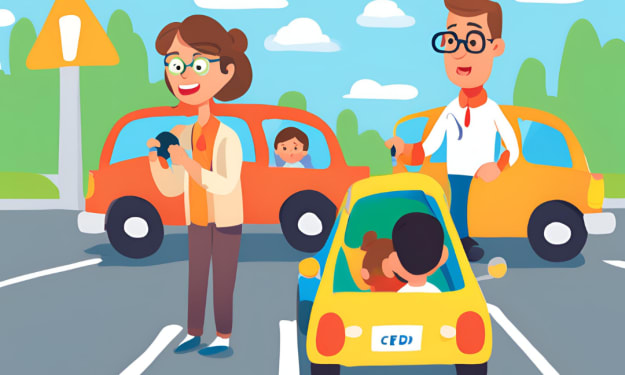The Ultimate Guide to learn new skills as a beginner
SKILLS

Learning a new skill can be both exciting and daunting, especially if you're a beginner. However, with the right approach, anyone can learn a new skill and master it over time.
Skills
Skills refer to the abilities or competencies that someone has developed through training, practice, or experience. They are often specific to a particular field or industry and can be technical or soft skills. Technical skills refer to the knowledge and abilities required to perform specific tasks or operate certain tools or systems, while soft skills refer to personal attributes such as communication, problem-solving, leadership, and teamwork.
Some examples of technical skills include programming, data analysis, graphic design, accounting, and project management. Soft skills, on the other hand, include skills such as critical thinking, communication, time management, adaptability, and conflict resolution. Both technical and soft skills are important for success in the workplace, and developing a diverse range of skills can help individuals stand out in their careers and achieve their goals.
It's important to note that skills are not static and can be improved or acquired over time. This can be done through formal education, on-the-job training, or self-directed learning. For instance, someone interested in learning programming can take online courses, attend coding boot camps, or practice coding on their own.
In today's rapidly changing job market, it's becoming increasingly important to stay up-to-date with the latest skills and technologies. This means that individuals need to be proactive in identifying the skills that are in demand in their industry and investing time and effort in developing them. By doing so, they can increase their employability, advance their careers, and remain competitive in a dynamic and ever-evolving job market.
Practical tips and strategies that can help beginners learn a new skill effectively:
1. Identify Your Learning Style
Everyone has a unique learning style. Some people learn better by reading, while others prefer hands-on experience. Identifying your learning style can help you choose resources that cater to your style. For instance, if you're a visual learner, you might want to watch video tutorials or read books with illustrations. On the other hand, if you're an auditory learner, you might prefer listening to podcasts or attending webinars.
2. Research the Skill
Before diving into learning a new skill, it's essential to do some research. Gather information on the skill by reading articles, watching videos, and listening to podcasts. Identify the key concepts, techniques, and tools involved in the skill. This will give you a solid foundation to build upon as you progress.
3. Start with the Basics
One of the biggest mistakes beginners make is trying to master everything at once. This can be overwhelming and lead to frustration. Instead, start with the basics of the skill. Focus on understanding the fundamental concepts and techniques before moving on to more advanced topics. This will help you build a strong foundation and make it easier to learn more complex aspects of the skill.
4. Practice Regularly
Practice is essential to learning any new skill. Make it a habit to practice regularly, even if it's just for a few minutes a day. This will help you build muscle memory and strengthen your skills over time. Set aside a specific time each day to practice, and stick to it. Consistency is key when it comes to learning a new skill.
5. Seek Feedback
One of the best ways to improve your skills is by seeking feedback from others. Reach out to people who are experienced in the skill and ask for their feedback. They can provide valuable insights and help you identify areas where you need to improve. Don't be afraid to ask questions or seek guidance. Remember, everyone starts as a beginner.
6. Join a Community
Join online communities or groups where people are learning the same skill. This can be a great way to connect with others who share your interests, ask questions, and get support. You can also share insights and tips with others, which can help you solidify your own understanding of the skill.
7. Be Patient
Learning a new skill takes time and effort. Don't get discouraged if you don't see progress immediately. It's normal to make mistakes and struggle at first. The key is to be patient and persistent. Celebrate small victories along the way, and don't give up. With the right mindset and approach, anyone can learn a new skill.

Learning a new skill can be a rewarding experience, but it requires effort and dedication. By following these practical tips and strategies, beginners can learn a new skill effectively and master it over time. Remember, the journey is just as important as the destination, so enjoy the process and have fun learning something new.
About the Creator
Sarah Ahmad
I am a versatile professional with skills in content creation, digital marketing, and teaching. I am experienced in writing articles, creating videos and graphics, and managing social media platforms.






Comments
There are no comments for this story
Be the first to respond and start the conversation.